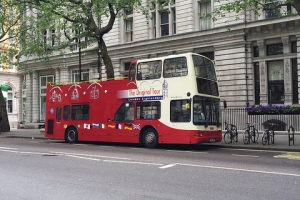Support migrant centric journalism today and donate

More temporary overseas workers will be able to come to the UK to meet labourdemands and boost the economy, under plans announced on 29th May 2002 bythe Home Office.
The Government is consulting on expanding two existing foreign workersschemes - the Working Holidaymakers Scheme (WHS) and the Seasonal AgriculturalWorkers Scheme (SAWS) to meet recruitment difficulties and demand for short termand seasonal workers. It also wants to make the WHS more inclusive of all of theCommonwealth.
Publishing the consultation papers, Home Office Minister, Lord Rooker, said:
" The expansion of these schemes will help us meet recruitment gaps anddemand for seasonal workers. This is not an alternative to developing the skillsand employment opportunities of our existing population, it is a complement toour ongoing work to achieve that.
"Properly managed legal migration also helps us tackle illegal working,which fuels the black economy, often involves dangerous and clandestine entryand leaves workers vulnerable to dangerous conditions, poor pay and exploitationfrom unscrupulous employers and criminal trafficking gangs.
"It also helps deal with abuse of the asylum system. Our asylum systemis to protect people fleeing persecution and torture, but we know that it is toooften abused by those who simply want to live and work in the UK. By opening uproutes for people to come and work here legally - in ways that help our economy- we can help reduce unfounded asylum claims."
The Working Holidaymakers Scheme:
Under the WHMS, nearly 40,000 Commonwealth young people a year come to the UKfor a holiday of up to two years. They are allowed to work for part of theirholiday, generally in unskilled or low skilled employment. The scheme brings ina Significant, additional, temporary, flexible workforce and allows Commonwealthyoung people to experience life in the UK.
At present, the vast majority of working holidaymakers come from Australia,New Zealand, Canada and South Africa. The figures for other Commonwealthcountries - particularly countries in Africa and on the Asian subcontinent - aremuch lower.
The Government wants to build on the scheme's ability to fill recruitmentgaps, and to make it more inclusive by encouraging young people from allCommonwealth countries to take part, while retaining its youth and culturalaspects.
The consultation paper suggests:
- relaxing restrictions on the type and amount of work holidaymakers can do during their stay;
- providing better information about the scheme in all Commonwealth countries;
- allowing people to come to the UK under the WHMS more than once;
- looking at the possibility of advertising 'hard to fill' vacancies to young people in eligible countries; and
- expanding the upper age limit for the scheme from 27 to 30.
In addition the Government is interested in introducing a similar, separatescheme, based on the WHMS, for EU candidate countries in the run up to freemovement of labour.
The Seasonal Agricultural Workers Scheme:
Casual, seasonal labour at peak times is vital to certain industries,particularly agriculture, where nearly 20,000 overseas workers a year pick andpack fruit and flowers and grade potatoes. Their employment peaks in the harvestmonths of August and September. In recent years there has been a shortage ofseasonal workers resulting in increasing illegal working.
The Government is looking at expanding the SAWS by considering:
- lengthening the eligible agricultural season;
- increasing the quota of workers who can come under the scheme; and
- expanding the scheme to other parts of the agricultural industry.
Further Consultation
The Government is also looking at setting up similar schemes for otherindustries, such as construction and hospitality, where there is also a need forshort-term labour to cover peak times. It is currently discussing the optionswith industry and the trades unions.
The Government is keen to hear views on the proposed changes to the schemes.On the SAWS, the Government will be meetings key interest groups, including thescheme operators, farmers, growers and trades unions.





















